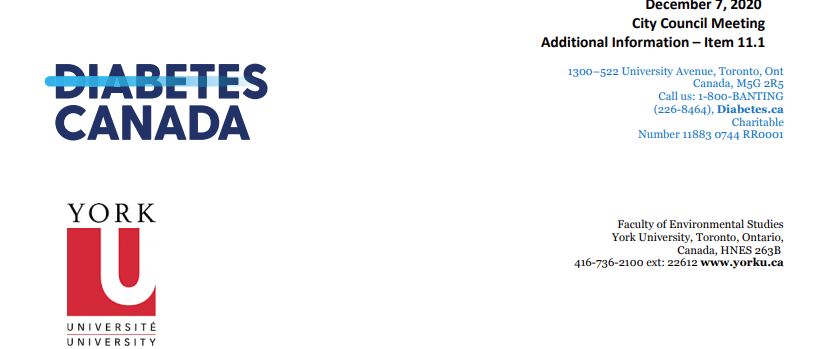
The City of Windsor
350 City Hall Square West,
Windsor, ON, N9A 6S1
December 7, 2020
Dear Mayor, Council and Staff,
This letter is to request the City of Windsor’s participation in Diabetes Canada’s used textile diversion program. Diabetes Canada is presently partnered with York University to conduct Canada’s first national study on textile waste diversion, identifying the economic, environmental and social impacts of textile diversion for municipalities. Your municipalities’ participation in this study is vital, as our findings will be used to inform new legislation regarding the management of used textiles in Ontario and across the country.
We firmly believe that the City of Windsor and Diabetes Canada can mutually benefit from a formal partnership, and Diabetes Canada is prepared to offer daily service for all municipal bins that serve your community. At present, it is estimated that more than 7,500,000 kilograms of used textiles are being generated by households in the City of Windsor on a yearly basis. This not only represents a significant amount of material being sent to landfills (more than 85% of used textiles presently goes to landfills), but it is a missed opportunity to generate revenue for critical, life-saving diabetes research.
Diabetes Canada and York University would like to work with the City of Windsor in developing a comprehensive textile diversion program in your municipality. We would like to identify the means and methods to support textile diversion through the placement of textile recycling bins at city arenas, community centres other public spaces and multi-residential sites. Diabetes Canada is uniquely positioned as a recognized charitable brand that has the requisite collection and processing infrastructure to ensure that used textiles are being managed effectively and responsibly (95% of all collected material are reused and or repurposed).
York University has conducted studies that have highlighted how imperative it is for households to recognize who the operator of the bin actually is. “Charity masqueraders” (for profit enterprises that resell textiles) actually discourage household participation, as households are unsure as to what actually happens to their donation. An important element of this is to have clothing bins with municipal branding, indicating an approved charitable partner.